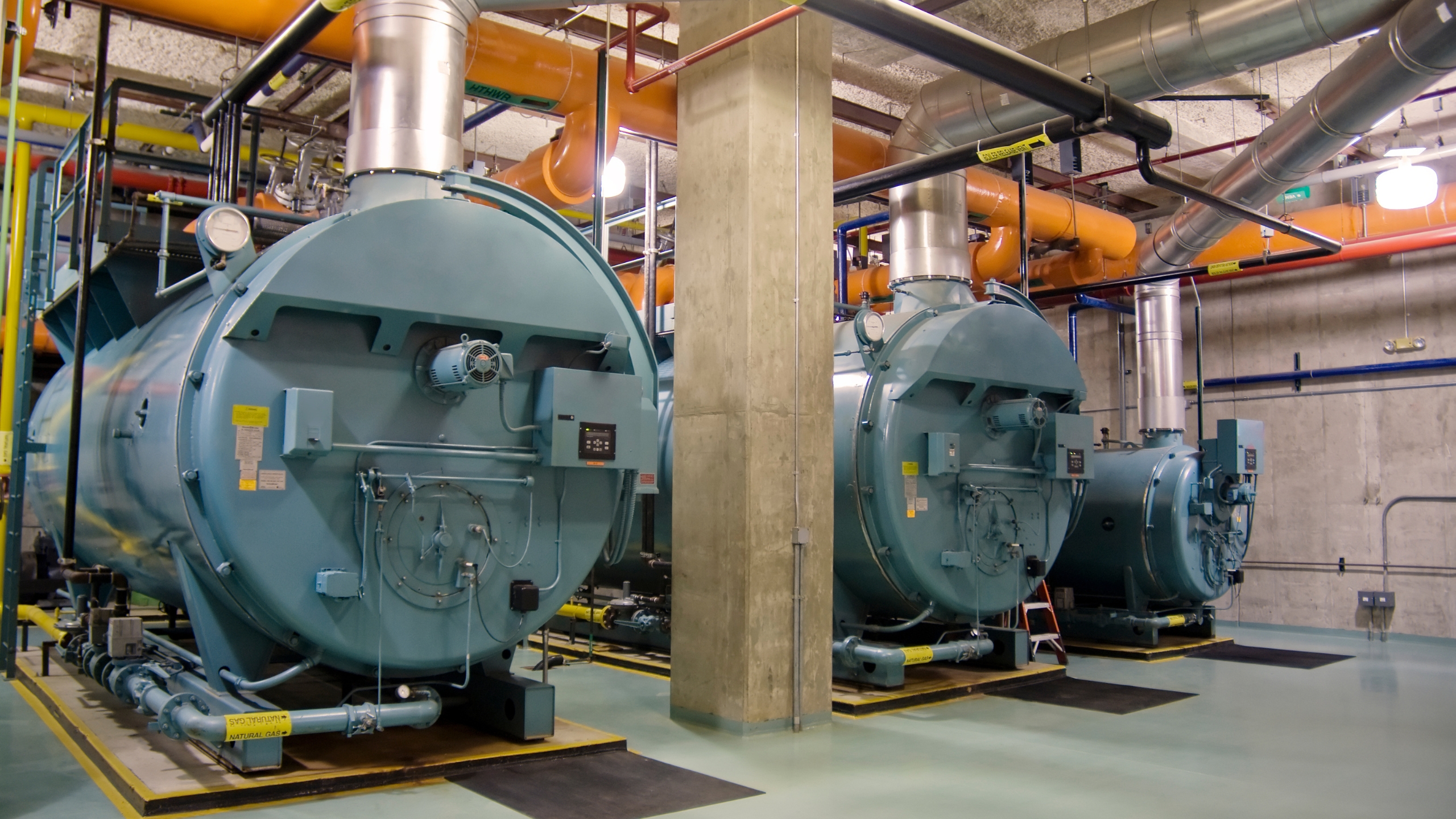
Replacing a commercial boiler is a significant decision that can impact your facility’s operations, energy efficiency, and overall costs. Whether due to aging equipment, frequent breakdowns, or rising energy bills, understanding when and how to replace your boiler is crucial. This guide provides a detailed overview of the key considerations, benefits, and steps involved in commercial boiler replacement.
Why Replace Your Commercial Boiler?
1. Aging Equipment
Commercial boilers typically have a lifespan of 15 to 30 years, depending on the type and usage. As boilers age, they become less efficient and more prone to breakdowns, leading to increased maintenance costs and downtime. If your boiler is nearing the end of its useful life, replacement may be more cost-effective than ongoing repairs.
2. Increased Energy Efficiency
Modern boilers are designed with energy efficiency in mind, offering significant improvements over older models. By upgrading to a high-efficiency boiler, you can reduce energy consumption, lower utility bills, and minimize your facility’s carbon footprint.
3. Frequent Repairs and Downtime
If your boiler requires frequent repairs or has become unreliable, it may be time to consider a replacement. Constant downtime not only disrupts operations but also adds to the overall cost of maintaining outdated equipment.
4. Compliance with Regulations
As energy efficiency standards and emissions regulations become more stringent, older boilers may no longer meet compliance requirements. Replacing your boiler with a modern, energy-efficient model ensures compliance and avoids potential penalties.
Key Considerations for Commercial Boiler Replacement
1. Assessing Your Current System
Before replacing your boiler, it’s essential to assess the current system’s performance and determine the exact needs of your facility.
- Energy Consumption:Review your facility’s energy usage and identify areas where a new boiler could improve efficiency.
- Capacity Requirements:Ensure the new boiler can handle the heating demands of your facility, including peak usage periods.
- Fuel Type:Consider the type of fuel your current boiler uses and evaluate whether switching to a different fuel source, such as natural gas, could offer cost or efficiency benefits.
2. Choosing the Right Boiler
Selecting the right boiler for your facility involves considering several factors, including size, efficiency, and compatibility with your existing infrastructure.
- Boiler Size:Choose a boiler that matches your facility’s heating needs without being oversized, as this can lead to inefficiency and higher operating costs.
- Efficiency Rating:Look for boilers with high AFUE (Annual Fuel Utilization Efficiency) ratings, indicating better energy efficiency.
- Type of Boiler:Consider different types of boilers, such as condensing or non-condensing, to determine which is best suited for your application.
3. Cost vs. Long-Term Savings
While the upfront cost of a new boiler can be substantial, it’s important to weigh this against the long-term savings in energy costs, maintenance, and repairs.
- Return on Investment (ROI):Calculate the potential ROI by comparing the energy savings and reduced maintenance costs with the initial investment.
- Financing Options:Explore financing options, including leasing or energy-efficient equipment incentives, to help offset the cost of the new boiler.
4. Installation and Downtime
The installation process for a new boiler can be complex and may require temporary shutdowns. Proper planning and coordination are essential to minimize disruption to your operations.
- Installation Timeline:Work with a professional installer to develop a detailed timeline that minimizes downtime and ensures a smooth transition.
- Temporary Heating Solutions:Consider temporary heating solutions to maintain operations during the installation process.
Benefits of Replacing Your Commercial Boiler
1. Lower Operating Costs
A new, energy-efficient boiler can significantly reduce operating costs by lowering energy consumption and minimizing the need for repairs and maintenance.
2. Improved Reliability
Modern boilers are more reliable and less prone to breakdowns, ensuring consistent heating and reducing the risk of unexpected downtime.
3. Enhanced Performance
Upgrading to a new boiler can improve overall system performance, providing more consistent heating and better control over indoor temperatures.
4. Environmental Impact
By reducing energy consumption and emissions, a high-efficiency boiler contributes to a more sustainable operation and helps meet environmental goals.
5. Increased Property Value
A new boiler can enhance the value of your property by improving energy efficiency and reducing future maintenance costs. This can be especially beneficial if you plan to sell or lease your facility in the future.
Steps to Replacing Your Commercial Boiler
1. Conduct an Energy Audit
Before selecting a new boiler, conduct an energy audit to assess your current system’s performance and identify potential areas for improvement. This will help you determine the right size and type of boiler for your needs.
2. Consult with Experts
Work with HVAC professionals who specialize in commercial boiler systems to evaluate your options and select the best boiler for your facility. They can provide valuable insights into the latest technology and help you navigate the installation process.
3. Plan the Installation
Develop a comprehensive installation plan that outlines the steps involved, the timeline, and any potential disruptions to your operations. Ensure that all necessary permits and inspections are obtained before starting the installation.
4. Implement Temporary Heating
If your facility cannot afford any downtime during the installation, implement temporary heating solutions to maintain operations. This could involve renting temporary boilers or heaters to keep the building warm while the new boiler is being installed.
5. Perform a Final Inspection
Once the new boiler is installed, perform a thorough inspection to ensure it is operating efficiently and meets all safety and compliance standards. This is also a good time to train staff on the new system’s operation and maintenance requirements.
Conclusion
Replacing a commercial boiler is a significant investment, but one that can offer substantial benefits in terms of energy efficiency, cost savings, and reliability. By carefully assessing your current system, choosing the right boiler, and planning the installation process, you can ensure a successful replacement that meets the needs of your facility. Whether you’re motivated by rising energy costs, frequent breakdowns, or regulatory compliance, a new boiler can provide long-term value and peace of mind.